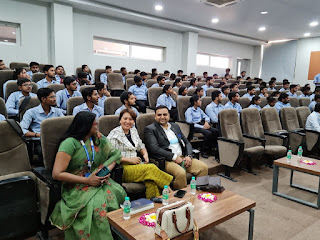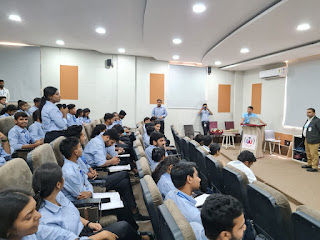Agricultural Engineering & Digital Agriculture Guest Lecture in @UnitedUniversity by
Dr. Nathaniel R. Alibuyog
On [13/04/2023], Dr. Nathaniel R. Alibuyog presented a seminar on the topic of Agricultural Engineering, Remote Sensing and Geographic Information System (GIS), and Climate Change, with a specific focus on digital agriculture.
 |
| Dr. Nathaniel R. Alibuyog |


Dr. Alibuyog began the seminar by discussing the challenges facing agriculture today, including the need to produce more food to feed a growing global population, the impact of climate change on crop yields, and the need to minimize the environmental impact of agricultural practices.
He then explained how Agricultural Engineering, Remote Sensing, and GIS can be used to address these challenges by providing farmers with tools and technologies to make informed decisions about crop production, soil management, and irrigation.
Dr. Alibuyog emphasized the importance of digital agriculture, which uses sensors, data analytics, and other digital technologies to optimize agricultural practices. He discussed how digital agriculture can be used to monitor soil moisture, crop growth, and weather patterns, allowing farmers to make real-time decisions about irrigation, fertilizer application, and pest management.
He also explained how Remote Sensing and GIS can be used to create detailed maps and models of the agricultural landscape, showing the spatial relationships between different factors such as soil type, topography, and climate. These maps and models can then be used to make informed decisions about crop selection, irrigation management, and other agricultural practices.
Dr. Alibuyog then discussed the impact of climate change on agriculture and how digital agriculture can be used to mitigate its effects. He explained how digital technologies can be used to monitor climate patterns, predict weather events, and develop irrigation and drainage systems that are better suited to changing weather conditions.
The seminar concluded with a discussion of the potential benefits of digital agriculture, including increased crop yields, improved resource efficiency, and reduced environmental impact. Dr. Alibuyog emphasized the need for continued research and innovation in the field of Agricultural Engineering, Remote Sensing, and GIS to ensure that farmers have access to the tools and technologies they need to produce food sustainably and adapt to a changing climate.
 |
| Dr. Ankita (HOD) |




.jpeg)












Great👍👏
ReplyDelete